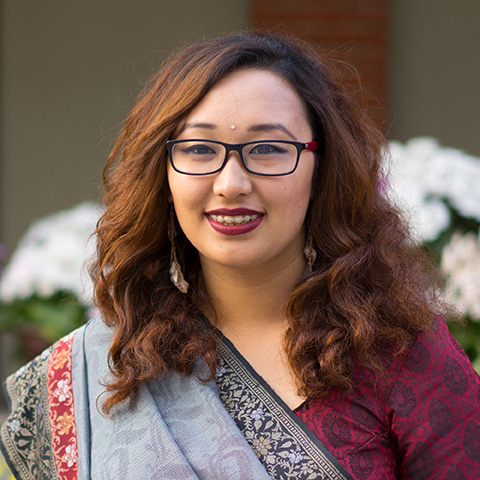My First two Months of Fellowship Journey
June 2, 2017
Early April, I left Kathmandu and traveled to Dhanusa for the first time to start my Teach For Nepal Fellowship journey. My heart sank as soon as I set my foot in Dhanusha. The air was dense and hot; the hills I was familiar with had disappeared and turned into endless flatlands; the languages I heard in the background became less familiar despite still being in Nepal, I felt like a foreigner in my own homeland. I only started getting attuned to the people and the place once the school began and my teaching journey in the classroom started. After seeing how quickly the students were to accept me despite our language barriers and many differences, it gave me a new hope and a reminder of why I had wanted to be part of this journey in the first place.
 |
As time passed, I began to interact with the students and their families and gradually learned about all the major problems the community is facing — problems of poverty, dowry system, child marriage, caste system and gender inequality. As someone who had spent most of her time in the metropolitan and lived abroad, the biggest culture shock I faced was realizing how rooted child marriage was in our culture. I had read about cases of child marriages in newspapers and magazines, but it was absolutely shattering when I started receiving marriage invitation cards of my own students. One day a girl from Grade 6 probably around the age of 12 was getting married against her will in the house next to ours and there was nothing we could do to stop the marriage. The most frustrating part is, it is almost impossible to stop a child marriage once it has been fixed and if you do try to stop, you get death threats from the family.
 |
It broke my heart when I found out that most women in Dhanusa didn’t even have basic rights and are not treated equal to men, there I was in the US, and even Kathmandu for that matter, advocating women’s rights and gender equity, and having received opportunities to study in excellent schools as well as experience cultures and sights of foreign country.
 |
In a society where women are oppressed, we are taking small steps to empower girls inside and outside of the classroom to break gender barriers. In the last few weeks, we have been encouraging girls to participate in public speaking and voicing their opinion in the classroom. We are seeking to inspire girls through sports such as volleyball and kabaddi (A sports mostly played by men in the region). We have been leading session at our student youth clubs that were established by previous Teach For Nepal Fellows, where we discuss the effects of child marriages. We also do home visits of those students who have been married, to convince their family to allow them to continue their education which has helped us bring at least one girl back to school who was married off when she was in Grade 9.
Last week, we found out that a 15-year-old student who was married last year had a miscarriage. After hearing such an unsettling news, we now plan to conduct sessions on health and sex education with the help of local nurses and local organizations who are familiar with dealing with the cultural sensitivities topic like these.
In such a short period of my journey, I have had an eye-opening experience where I have gained new perspectives about the intricacy of problems in this community and in relation to that of our country. Moreover, I’ve realized my privileges and have come to face my own shortcomings and all things I took for granted.
Dhanusa is filled with a web of problems, despite its growing physical infrastructure; it is still backward in many social aspects—to the extent, it feels like one has traveled back in time. Ending these problems requires work across all sectors and at all levels from every part of the world. If we can provide girls access to an education, they have a chance to improve their chances of access to employment and a means of supporting themselves and then, in turn, their families. Organizing empowering programs for young girls can prevent a child marriage or early marriage by improving both their sense of self and self-efficacy through informing girls of their basic human rights, their rights to refuse a marriage, and educational session on health and sex education.
For the next two years, I want to give my best and keep trying with an open mind and an open heart. There is so much to do in such a little time and we hope you add your voice to the chorus of millions by Facebook and Twitter to accelerate our efforts of ending the problems of child marriage within a generation.
| Swechhya Rajbhandary is one of the 47 Fellows who just started their Teach For Nepal Fellowship. She is currently teaching in Sohani Mujeliya, Dhanusa. Prior to joining Teach For Nepal Fellowship, she completed her Bachelor's in Economics from Knox College, Illinois, USA. You can sponsor Swechhya or Fellows like her by donating to Teach For Nepal. |

